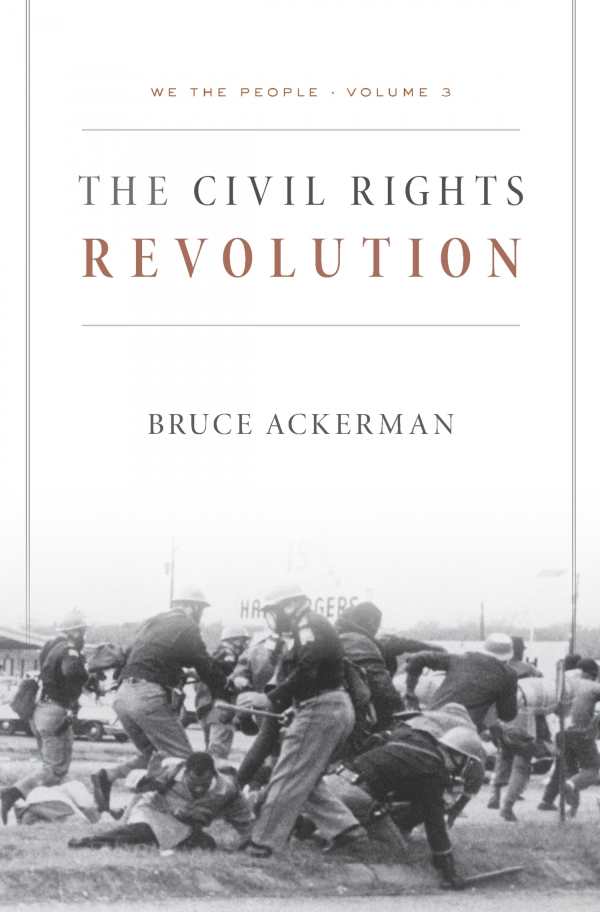The Civil Rights Revolution
We the People, Volume 3
Many of today’s American political arguments hinge on interpretations of the Constitution, which has, throughout history, been formally amended to reflect the needs of changing times. Bruce Ackerman’s book focuses on the ways in which “constitutional moments,” created when engaged citizens mobilize in focused and sustained movements for change, result in the enactment of statutes that reflect “the considered judgment” of the American people and institute a new “constitutional regime” affecting how the Constitution is interpreted and applied.
The book, directed toward legal professionals but enlightening for all engaged citizens, makes a compelling case for the argument that constitutional change is not limited to the formal Article V amendment process but can occur through the enactment of statutes; the civil rights statutes of the mid-twentieth century are a good example. Ackerman shows how such statutes serve to create a new constitutional regime and explains the stages of the process, from revolution to mass movement to statutory law.
Beyond meticulous and intricate analyses of legal texts, the book reveals little-known, often surprising information on members of various branches of government and the civil rights movement. Beginning with the era of Brown v. Board of Education, it culminates with Lyndon Johnson and the Supreme Court’s work to protect all citizens from racial discrimination.
While today’s challenges may cast doubt on the validity of America’s tradition of popular sovereignty, landmark statutes enacted as a result of the efforts of “We the People” have resulted in the expansion of voting rights, institution of fair housing laws, desegregation of schools, repeal of racial miscegenation laws, enactment of gay rights protections, and more. To protect these gains, Ackerman compellingly suggests the creation of a “Third Reconstruction” phase for the United States in which equal opportunity could be more fully realized.
Reviewed by
Kristine Morris
Disclosure: This article is not an endorsement, but a review. The publisher of this book provided free copies of the book to have their book reviewed by a professional reviewer. No fee was paid by the publisher for this review. Foreword Reviews only recommends books that we love. Foreword Magazine, Inc. is disclosing this in accordance with the Federal Trade Commission’s 16 CFR, Part 255.

